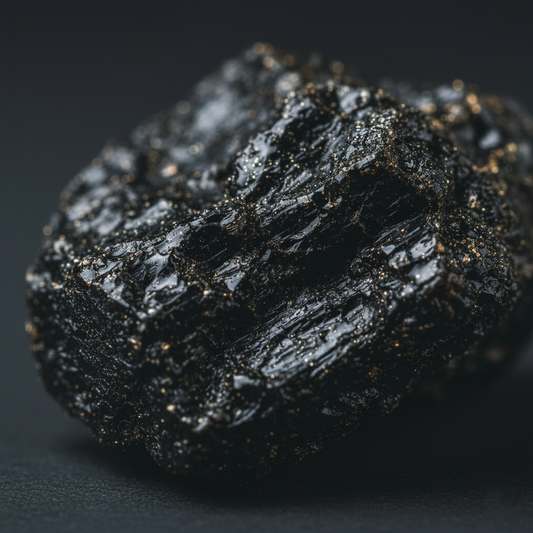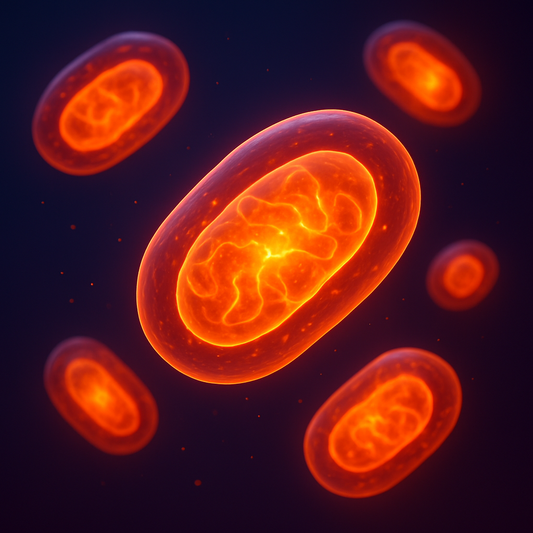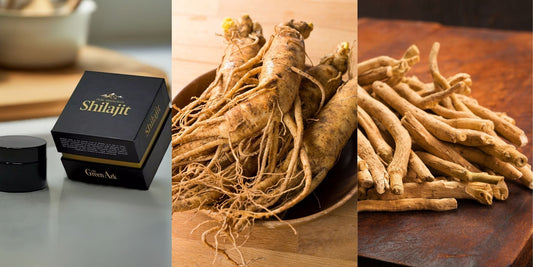Shilajit, a natural substance with origins in the Himalayas, has been a staple in traditional medicine for centuries. Its use spans various cultures, from Ayurveda in India to traditional Tibetan medicine. In recent years, scientific interest in Shilajit has grown, particularly regarding its potential anti-inflammatory properties. This article delves into the evidence surrounding Shilajit's role in managing inflammation, exploring its mechanisms of action, effectiveness, and important considerations for use.
Table of Contents
- Introduction
- Potential Anti-inflammatory Mechanisms of Shilajit
- Evidence for Shilajit's Effectiveness in Inflammation
- Important Considerations and Cautions
- Conclusion
I. Introduction
Shilajit, also known as "rock sweat" or "rock resin," is a tar-like substance that oozes from rocks in the Himalayas during the summer months. It is rich in organic compounds, including fulvic acid, minerals, and other bioactive substances. Traditionally, Shilajit has been prized for its purported rejuvenating and healing properties.
Inflammation is a natural immune response aimed at protecting the body from harmful stimuli, such as pathogens, toxins, or injuries. However, chronic inflammation is associated with various health conditions, including arthritis, cardiovascular disease, and inflammatory bowel disease.
This article focuses on exploring whether Shilajit holds promise as a natural remedy for managing inflammation and associated conditions.
II. Potential Anti-inflammatory Mechanisms of Shilajit
Shilajit contains several bioactive components that are thought to contribute to its anti-inflammatory effects. Fulvic acid, a key compound found in Shilajit, has antioxidant properties and may help reduce oxidative stress, a common trigger for inflammation. Additionally, minerals present in Shilajit, such as zinc and selenium, play essential roles in immune function and may modulate inflammatory responses.
Studies have suggested various mechanisms through which Shilajit may exert its anti-inflammatory effects, including:
- Antioxidant Activity: Fulvic acid and other components of Shilajit scavenge free radicals and reduce oxidative damage to cells and tissues.
- Immune Modulation: Shilajit may regulate immune cell activity, leading to a balanced inflammatory response.
- Inhibition of Inflammatory Pathways: Certain compounds in Shilajit may interfere with signaling pathways involved in inflammation, potentially reducing the production of pro-inflammatory molecules.
While pre-clinical studies have shown promising results, more research, particularly well-designed clinical trials, is needed to validate these mechanisms in humans.
III. Evidence for Shilajit's Effectiveness in Inflammation
Research on Shilajit's effectiveness in managing inflammation is still in its early stages, with limited clinical evidence available. However, some pre-clinical and clinical studies have shown promising results:
- Arthritis: A small clinical trial published in the Journal of Medicinal Food reported that Shilajit supplementation reduced symptoms of osteoarthritis and improved physical function in participants.
- Muscle Soreness: Another study demonstrated that athletes taking Shilajit experienced faster recovery from exercise-induced muscle damage compared to placebo.
- Chronic Inflammation: Pre-clinical studies in animal models have shown that Shilajit supplementation reduced markers of inflammation in conditions such as colitis and rheumatoid arthritis.
Despite these positive findings, the overall evidence is limited, and more robust studies are needed to confirm the effectiveness of Shilajit for managing inflammation in humans.
IV. Important Considerations and Cautions
Before considering Shilajit supplementation for inflammation management, it's essential to consider the following:
- Consultation with Healthcare Professional: Individuals with underlying health conditions, pregnant or breastfeeding women, and those taking medications should consult a healthcare professional before using Shilajit.
- Quality and Sourcing: The quality of Shilajit products can vary significantly. Look for reputable brands that provide transparency about sourcing and manufacturing practices.
- Potential Side Effects: While generally considered safe when used appropriately, Shilajit may cause side effects such as digestive discomfort in some individuals. Start with a low dose and monitor for any adverse reactions.
V. Conclusion
In conclusion, while preliminary evidence suggests that Shilajit may possess anti-inflammatory properties, more research is needed to confirm its effectiveness and mechanisms of action. As with any natural remedy, it's crucial to approach Shilajit supplementation with caution and consult a healthcare professional for personalized advice. While Shilajit shows promise as a potential tool in managing inflammation, further studies are necessary to unlock its full therapeutic potential.
Remember, individual responses to Shilajit may vary, and it should not replace conventional medical treatment without proper guidance. Stay informed, stay cautious, and prioritize your health above all else.
For premium Shilajit products, check out TheGreenArk's Original Shilajit collection for trusted and quality options.
Key Takeaways:
- Shilajit is a natural substance with potential anti-inflammatory properties.
- It contains bioactive compounds like fulvic acid and minerals that may help reduce inflammation through antioxidant and immune-modulating effects.
- While some studies suggest benefits for conditions like arthritis and muscle soreness, more research is needed to confirm effectiveness and safety.
- Consult a healthcare professional before using Shilajit, and prioritize quality and sourcing when selecting products.




